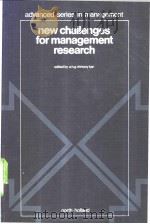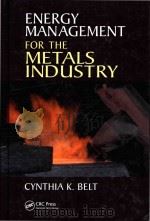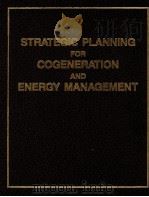《SOLUTIONS FOR ENERGY SECURITY & FACILITY MANAGEMENT CHALLENGES》
| 作者 | 编者 |
|---|---|
| 出版 | 未查询到或未知 |
| 参考页数 | |
| 出版时间 | 没有确切时间的资料 目录预览 |
| ISBN号 | 无 — 求助条款 |
| PDF编号 | 820553858(仅供预览,未存储实际文件) |
| 求助格式 | 扫描PDF(若分多册发行,每次仅能受理1册) |

SECTION 1: ENERGY MANAGEMENT1
Chapter 1 High Frequency Metal Halide Ballast3
Chapter 2 Energy Efficiency of Rotary Dryers in Manufacturing Plants7
Chapter 3 Energy information and How to Turn It into Knowledge15
Chapter 4 Results from the industrial Assessment Center (IAC) Steam Tool Benchmarking Support Project19
Chapter 5 the industrial Partnership of ENERGY STAR27
Chapter 6 Is Commissioning Once Enough? 29
Chapter 7 Central Plant Retrofit Considerations37
Chapter 8 Exhaust Air: control it and Save Money43
Chapter 9 Making Buildings Work...A Case Study of an Innovative Cold Air Retrofit49
Chapter 10 Technology Demonstration: Magnetically-Coupled Adjustable Speed Drive Systems53
Chapter 11 ADD CHP-Accelerated Development and Deployment of Combined Cooling, Heat and Power at Federal Facilities63
Chapter 12 Investment Grade Audits...Fact or Fiction71
Chapter 13 Advanced Tools for Energy Auditing77
Chapter 14 Air Force Performance Contracting in the US and Overseas83
Chapter 15 Operations and Maintenance for Federal Buildings: Capturing the Potential91
Chapter 16 FEMP's OM Best Practices Guide: A Guide to Achieving Operational Efficiency97
Chapter 17 Building Continuous Commissioning Guidebook103
Chapter 18 Software Maintenance: A Must for Energy Management Programs111
Chapter 19 If Buildings Were Built Like Cars-The Poential for information and Control Systems Technology in New Buildings115
Chapter 20 Maximizing Revenue Potential Through Remote Automation Systems127
Chapter 21 Strategy for Developing 10-Year Energy Management Plans at US Army Forces Command Installations129
Chapter 22 Real-Time Risk Management in the Energy Market: Goals and Challenges141
Chapter 23 Army's Sustainable Design and Development Program for Military Facilities145
Chapter 24 Successful Development and Privatization of Energy Plants Through Enhanced Leasing147
Chapter 25 Assessment of Non-Electric Cooling Alternatives to Reduce the Electric Demand on New York's Power Grid153
Chapter 26 Hybrid Plant Expansion: A Case Study at SJSU165
Chapter 27 Variable Air Volume and Ventilation (VAV2)169
Chapter 28 The Changing Role of the Energy Manager173
Chapter 29 Heat Recovery Strategies for Low Temperature Heat Sources177
Chapter 30 Delivering Energy Efficiency Services to Wisconsin's Industries: Actions, Experiences and Results from the Focus on Energy Program191
Chapter 31 Energy 101: Ten Ways to Reduce Facility Energy Costs or What to Look at First201
Chapter 32 Leveraging Power: How to Use Energy Management Systems to Track Power and Negotiate Better Prices209
Chapter 33 Energy Management Challenges in the Water/Wastewater Industry217
Chapter 34 Working Overseas on Energy Management Projects: Cultural and Financial Considerations225
Chapter 35 Achieving Energy Efficiency in Buildings that Utilize Subsidized Electrical Energy237
Chapter 36 Demand Exchange Trading Floor (Dex): A New Opportunity for End Users and Utilities Under a Regulated Environment245
Chapter 37 Fitting Flexible Wind Speed Models: A New Approach249
Chapter 38 Prospective FORSCOM Energy Intensities271
SECTION 2: GEOEXCHANGE281
Chapter 39 Geothermal Heat Pumps - A Case Study of Federal Agencies Leading by Example283
Chapter 40 Water+ Geothermal Heating and Cooling from Municipal Water297
SECTION 3: ENERGY SERVICE303
Chapter 41 Investment Grade Energy Audit305
Chapter 42 A Contractor's Real World Performance Contracting Experiences311
Chapter 43 A Discussion of the Economic Aspects of Implementing Energy Conservation Opportunities315
Chapter 44 Use of Measurement and Verification Systems for Continuous Commissioning329
Chapter 45 Using Advanced Metering to Measure and Verify Savings on Energy Projects333
Chapter 46 Market-Based Energy Procurement337
Chapter 47 Utility Deregulation: How to Make It Work for You343
Chapter 48 Measurement and Verification of a Utility's Energy Management Program357
Chapter49The Energy Engineer's Guide to Performance contracting Opportunities367
Chapter 50 The Effect of Building Geometry on Energy Use371
Chapter 51 Performance Contracting: Tips to Get What You Need and Avoid What You Don't379
Chapter 52 The City of Calgary Fire Stations387
SECTION 4: COMBINED HEATPOWEK/COGENERATION391
Chapter 53 Enabling Distributed Generation and Demand Response with Enterprise Energy Management Systems393
Chapter 54 Natural Gas Purchasing Strategies: Making Sense of It All401
Chapter 55 The Rapidly Approaching Market for Fuel Cell Power Generation407
Chapter 56 Lessons learned from World's Largest Fuel Cell Installation: Connecticut Juvenile Training School411
Chapter 57 Steam Turbine Versus Pressure Reducing Valve Operation415
SECTION 5: RENEWABLE ENERGY TECHNOLOGY421
Chapter 58 Solar Electric Technologies and Applications423
Chapter 59 Solar Heating for Emergency Diesel Generators429
Chapter 60 Policies and Incentives for Biomass Power to Become a Real Player In the Competitive Electricity Market437
Chapter 61 Using Facility Intelligence to Manage Energy Costs at Multiple Sites441
Chapter 62 Evaluating Building Performance Using Interval Meter Data447
SECTION 6: ENVIRONMENTAL TECHNOLOGY457
Chapter 63 Indoor AirEnvironmental Quality (IAEQ): Investigation Introduction (Including Toxic Mould)459
Chapter 64 Updates on Legislation and Insurance Activity in the Nation for Mould, Asbestos, and lead465
Chapter 65 Buildings for a Livable Future471
Chapter 66 Sustainable and High Performance Building Design, Construction and Operation: An Engineer's Perspective475
Chapter 67 The High Performance School, Sustainable, Obtainable and Cost-Effective479
Chapter 68 The Energy Manager's Role in Sustainable Design485
Chapter 69 Benefit-Cost Analyses of Sustainable Building Features489
Chapter70 Fast and Innovative Delivery of High Perfoiraance Building: Design-Build Delivers with Less Owner Liability497
SECTION 7: FACILITIES SECURITY505
Chapter 71 Reducing the Vulnerabilities of Department of Defense Utilities and Energy Use507
Chapter72 Energy Security and Small-Scale Generation: Some Things Never Change511
Chapter 73 Highly Reliable Electric Power System Design with Probabilistic Risk Assessment513
Chapter 74 Massachusetts and Energy Security: What One State Is Doing to Enhance Security Through Distributed Generation517
Chapter 75 Renewable and Distributed Energy as a Security Tactic523
SECTION 8: PLANTFACILITIES MANAGEMENT527
Chapter 76 Energy Management of Wake County Schools: A Growing Demand529
Chapter 77 From Tick Took to the Superhighway to Save Energy Dollars533
Chapter 78 Power Quality Solutions to Mitigate the Impact of Voltage Sags in Manufacturing Facilities537
Chapter 79 Powering the Digital Revolution: Electric Power Security, Quality, Reliability, and Availability in the Digital Age547
Chapter 80 How Enterprise Energy Management Systems Help Maximize Reliability559
Chapter 81 Building Business Partnerships with Your Electric Utility: A Power Quality Perspective565
Chapter 82 Energy and Cost Savings Through EMS Optimization573
Chapter 83 Striving for Cost-Effective Energy information Solutions: Emerging Web-Based Technologies Provide Hope!583
Chapter 84 A New Approach to Maintaining Chiller Efficiency589
Chapter 85 Information Technology Basics for Energy Managers- How a Web-Based Energy Information System Works595
《SOLUTIONS FOR ENERGY SECURITY & FACILITY MANAGEMENT CHALLENGES》由于是年代较久的资料都绝版了,几乎不可能购买到实物。如果大家为了学习确实需要,可向博主求助其电子版PDF文件。对合法合规的求助,我会当即受理并将下载地址发送给你。
高度相关资料
-
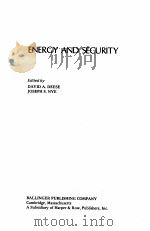
- ENERGY AND SECURITY
- 1981 BALLINGER PUBLISHING COMPANY
-

- Solutions manual for Management Scienc
- 1993 Allyn and BACON
-
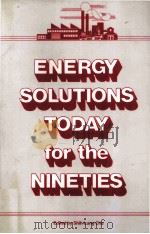
- ENERGY SOLUTIONS TODAY for the NINETIES
- 1987 the American Society of Civil Engineers
-
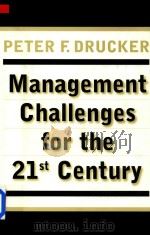
- Management Challenges for the 21st Century
- 1999 Harper Business
-

- CHALLENGES IN EDUCATIONAL MANAGEMENT
- 1987 CROOM HELM
-

- Energy Management
- 1982 Butterworth & Co(Publishers)Ltd
提示:百度云已更名为百度网盘(百度盘),天翼云盘、微盘下载地址……暂未提供。➥ PDF文字可复制化或转WORD



